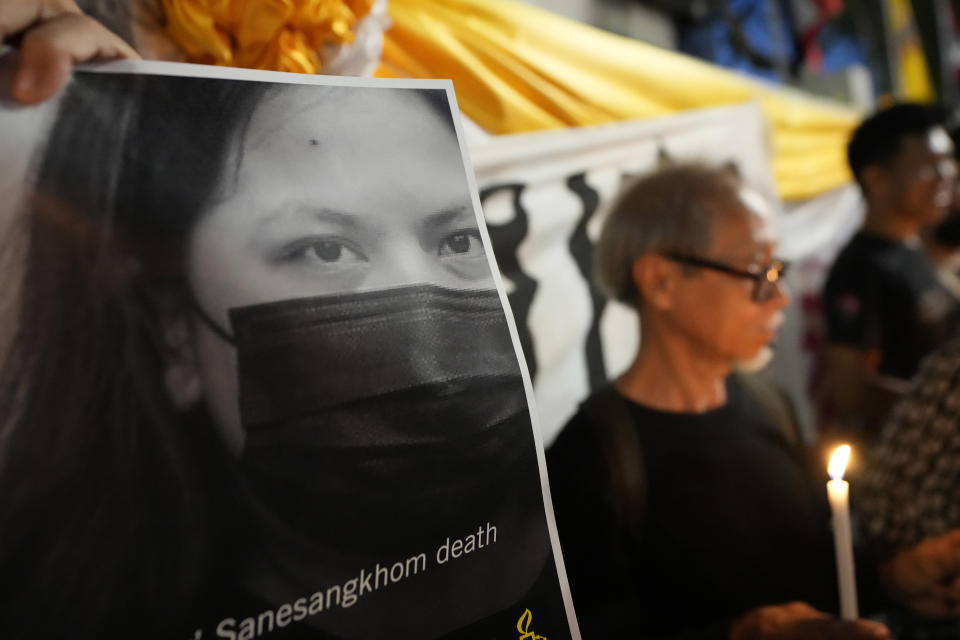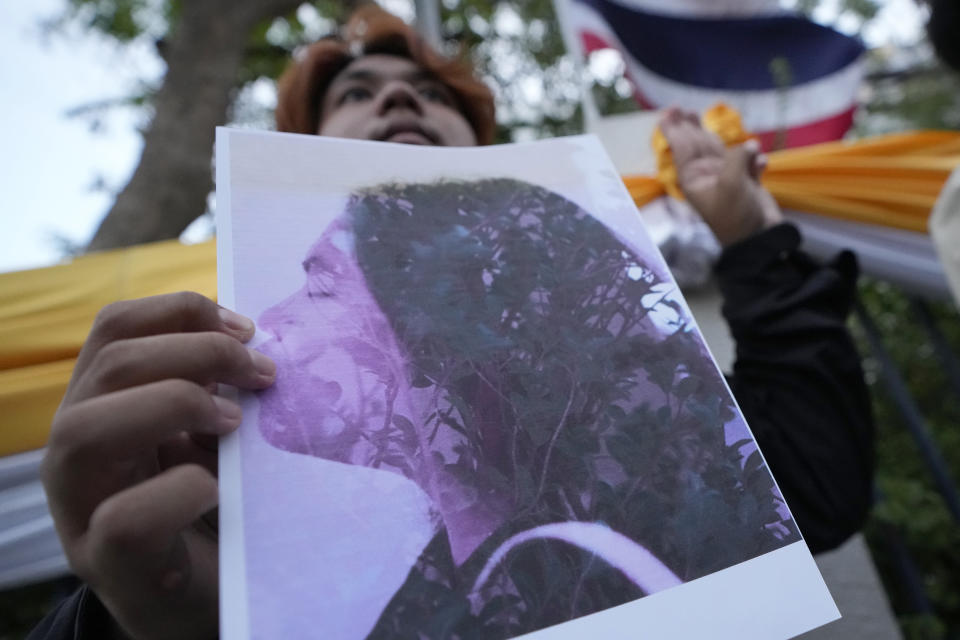Thai prime minister promises investigation after activist died in detention
BANGKOK (AP) — Thailand’s prime minister on Wednesday offered his condolences to the family of a young activist who died in detention after a monthslong hunger strike, amid a public debate on the country’s justice system.
Netiporn “Bung” Sanesangkhom, 28, died on Tuesday after suffering cardiac arrest while she was being detained at Bangkok’s Central Women’s Correctional Institution on charges that included defaming the monarchy. She had been on a hunger strike to protest the revokation of her bail in January.
Her death has prompted calls for reviewing a judicial process that allows people accused of politically-motivated, nonviolent offenses to be held for extended periods ahead of trial.
Prime Minister Srettha Thavisin told reporters that Netiporn’s death was a loss that no one wanted, and said he has ordered the Justice Ministry to investigate.
Officials from the Corrections Department said during a press conference on Wednesday that while Netiporn appeared fatigued following her prolonged hunger strike, she had been well and there was no sign that she would develop such critical conditions, and that they had done everything to try to save her life.
They also said the activist had already resumed eating, but refused to take other supplements that could help her body take nutrients better after fasting for so long. They declined to speculate on the possible cause of death until the autopsy results are released.
An autopsy was carried out on Wednesday morning and the initial results are expected on Thursday, said Netiporn’s lawyer Kritsadang Nutcharat. But Kritsadang told reporters that he doesn’t believe the Corrections Department's version of events.
“She died in your arms. If she had been well, she wouldn’t have died,” he said, adding that the public should focus on the fact that Netiporn died while being detained, not whether she had been eating.
Netiporn was a member of the activist group Thaluwang, loosely translated as “breaking through the palace.” Its members are known for aggressive campaigns demanding reform of the monarchy and abolition of the law that makes it illegal to defame members of the royal family.
Until recent years, criticism of Thailand's monarchy was taboo, and insulting or defaming key royal family members remains punishable by up to 15 years in prison under a law usually referred to as Article 112 of Thailand’s Criminal Code.
But student-led pro-democracy protests began to challenge that taboo in 2020, openly criticizing the monarchy. That led to vigorous prosecutions under what was previously a little-used law. Critics say the law is often wielded as a tool to quash political dissent.
Netiporn was one of more than 270 activists, many university students, charged under the royal defamation law following those protests. Their supporters say that the authorities have violated their rights by holding them in prolonged pretrial detention and denying their release on bail.
She was originally detained in May 2022, and released on bail in August 2022 after a previous hunger strike. She was rearrested in January for breaking the terms of her bail by participating in a political rally in 2023.
Netiporn was facing several charges stemming from political activities, including two charges of defaming the monarchy. Both involved conducting polls in public spaces in 2022 to ask people’s opinions about the royal family, according to the group Thai Lawyers for Human Rights.
Thai Lawyers for Human Rights said they had requested bail 45 times for 27 political prisoners from January to April. None of those requests were granted, it said.
Another activist who is facing lese mejeste charges and had been detained several times, Panusaya “Rung” Sitthijirawattanakul, expressed disappointment in Srettha’s government, which took office in August following an election that ended nearly a decade of military rule.
“Before the election, they said that after they became a government they would ask the court to release political prisoners, and they would amend Article 112,” she said during a candlelight vigil for Netiporn on Tuesday night, “None of that ever came true.”
When asked about growing calls for young political detainees to be released, Prime Minister Srettha said “I believe the Justice Minister has heard these calls. It is under consideration and there will be discussions regarding all processes of justice. Everyone must be treated fairly.”
The U.N.’s human rights office in Southeast Asia, in a Tuesday post on the social network X, said it was “deeply disturbed” by Netiporn’s death and called for a transparent investigation. It also emphasized that freedom of expression and peaceful assembly are fundamental rights.
Kritsadang, the lawyer, also called for the prime minister to take serious action on problems in the system of justice before making an official visit to France and Italy this week, noting the government’s bid for a seat on the U.N. Human Rights Council’s for the 2025-2027 term.
Netiporn’s funeral service will be held at a Buddhist temple in Bangkok from Thursday to Sunday, the Thaluwang group said.



